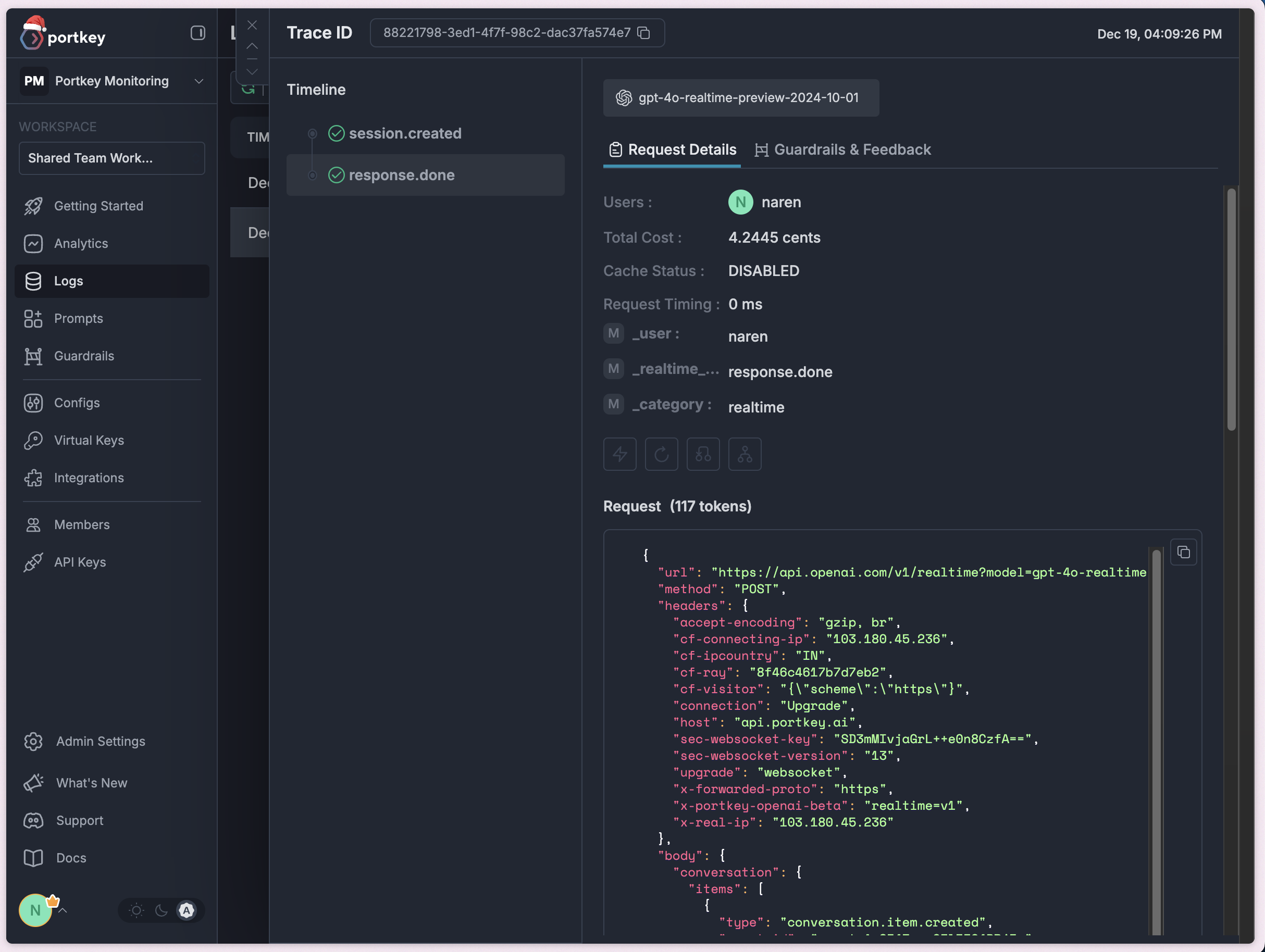// requires `yarn add ws @types/ws`
import OpenAI from 'openai';
import { OpenAIRealtimeWS } from 'openai/beta/realtime/ws';
import { createHeaders, PORTKEY_GATEWAY_URL } from 'portkey-ai';
const headers = createHeaders({
provider: "openai",
apiKey: "PORTKEY_API_KEY",
provider:'@PROVIDER'
})
const openai = new OpenAI({
baseURL: PORTKEY_GATEWAY_URL,
defaultHeaders: headers
});
const rt = new OpenAIRealtimeWS({ model: 'gpt-4o-realtime-preview-2024-12-17', options: {headers: headers} }, openai);
// access the underlying `ws.WebSocket` instance
rt.socket.on('open', () => {
console.log('Connection opened!');
rt.send({
type: 'session.update',
session: {
modalities: ['text'],
model: 'gpt-4o-realtime-preview',
},
});
rt.send({
type: 'conversation.item.create',
item: {
type: 'message',
role: 'user',
content: [{ type: 'input_text', text: 'Say a couple paragraphs!' }],
},
});
rt.send({ type: 'response.create' });
});
rt.on('error', (err) => {
// in a real world scenario this should be logged somewhere as you
// likely want to continue procesing events regardless of any errors
throw err;
});
rt.on('session.created', (event) => {
console.log('session created!', event.session);
console.log();
});
rt.on('response.text.delta', (event) => process.stdout.write(event.delta));
rt.on('response.text.done', () => console.log());
rt.on('response.done', () => rt.close());
rt.socket.on('close', () => console.log('\nConnection closed!'));

